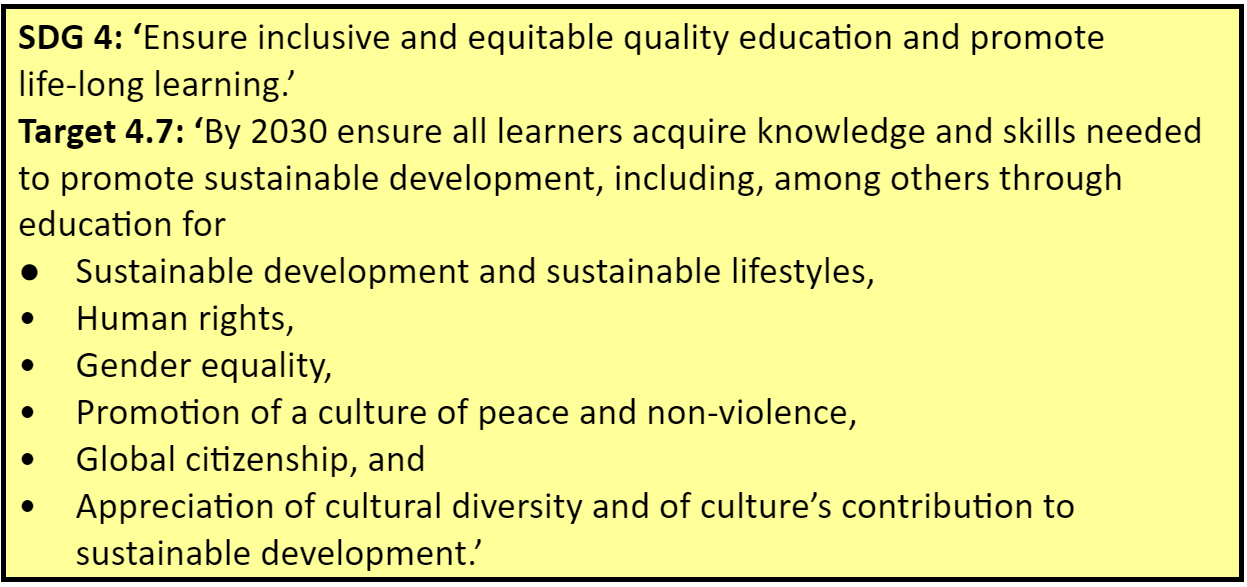
SDG Target 4.7 constitutes a commitment by countries, civil society, development partners and international organizations to rethink and transform the purposes of education. The global and humanistic aims for education found in Target 4.7 address fundamental issues of sustainability, global citizenship, climate change, gender equality, cultural diversity, human rights, and peace/ non-violence. They are relevant to diverse local, national, regional, and global communities. While many countries have embedded aspects of Target 4.7 in their national education policies and curriculum frameworks, it can be difficult to reflect such policy ideals in the actual learning experiences of children and youth, particularly in low- and middle-income countries with resource constraints.
NISSEM proposes to focus on the reformulation and revision of textbooks so that they may incorporate nationally prioritized topics and examples of effective action aligned with SDG Target 4.7. While most countries have already integrated some aspects of Target 4.7 in the teaching of social science subjects and extracurricular activities, much remains to be done. We believe that nationally prioritized topics from Target 4.7 can be integrated across the curricular spectrum: from their association with core concepts and skills in the sciences and language teaching to a presence in the arts, communication, and moral education. Rather than being an addition to an already overloaded curriculum, attention to the transformative purposes found in Target 4.7 can be embedded in subject teaching as well as in holistic and cross-curricular approaches.
Educators in each country should decide how best to integrate appropriate and relevant elements from Target 4.7 in different education settings. Students should be given progressive opportunities to understand and care about relevant aspects of Target 4.7 from multiple perspectives, so that when they leave school, they carry with them values and commitments to inclusion and respect, and a sense of agency for promoting equitable and sustainable development in the broadest sense.